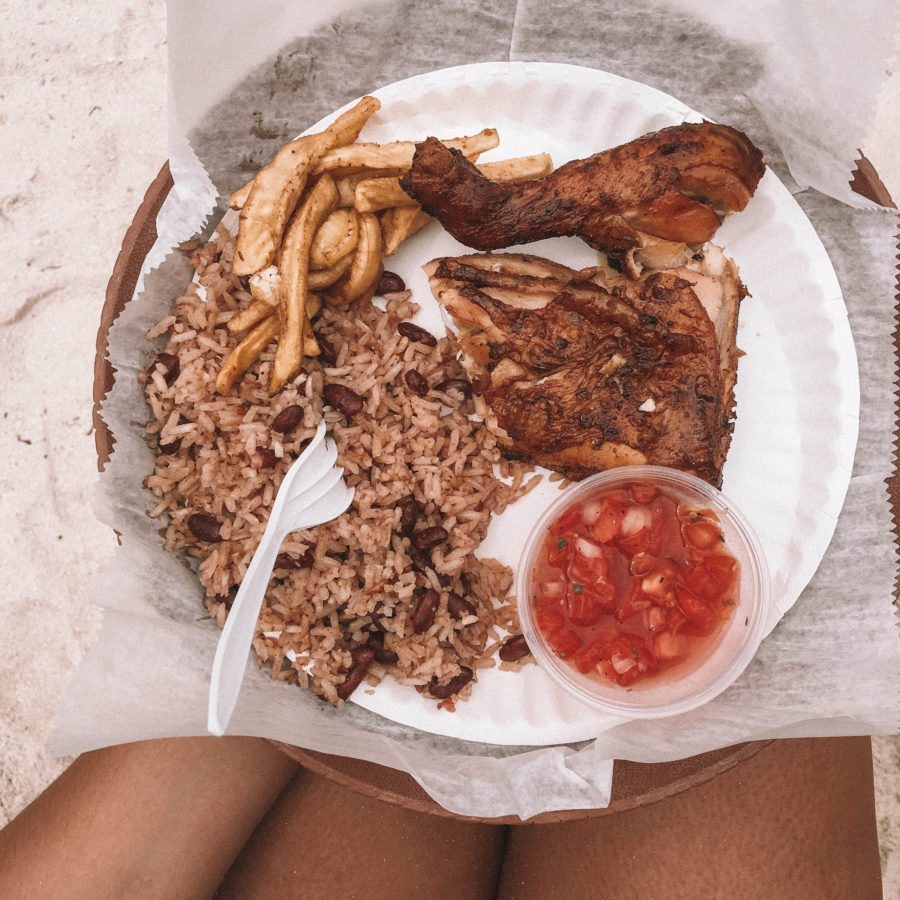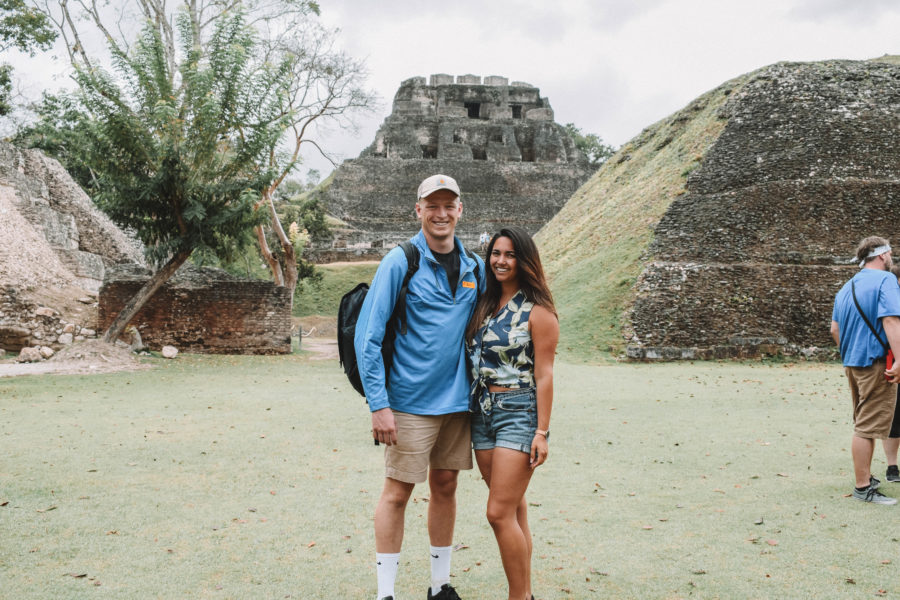Disclaimer: This post has been sponsored by OptumCare. This post is not meant to be treated as medical advice. Please consult your own doctor to see what is right for you.

When it comes to staying healthy on a trip, no one has a better idea of what to do than a doctor. From getting the correct vaccinations, preparing to travel, and staying healthy on a trip, they’ve got it down. So today, I’m sharing with you the top tips for staying on top of your health while traveling from Dr. Sharma at New Pueblo Medicine in Tucson.
What are some of the biggest challenges with travel medicine today?
Travel medicine is constantly changing and evolving. Every day brings new health information from across the world. Dr. Sharma even shared two stories of patients with me who had developed never-before-seen or extremely rare disease symptoms and needed special assistance and care.
But don’t let that scare you away from travel! He also shared some of his own health tips for travel!

A Good Start:
First and foremost, try getting in better shape before you go. Eat healthy and start walking more to prepare yourself for more pedestrian-friendly cities, where you may do more walking than you’re used to. Dr. Sharma also recommends checking out the Center for Disease Control and Prevention (CDC) traveler’s website as well as the National Institute of Health (NIH) website before planning any trip. The CDC website has a special section on traveler’s health where they list current health notices by country. The health risks are labeled as 1, 2, or 3: 1 for practicing usual precautions, 2 for practicing enhanced precautions, and 3 for avoiding nonessential travel. You can search for the country you’re interested in, and see if there are any current health notices.
In addition, you can search for additional health information by location and type of traveler. For example, when I studied abroad in Australia, this website informed me of additional vaccinations I may need as a study abroad student (since we tend to travel to nearby countries as well). They also have additional information if you’re traveling with children, a chronic disease, on a cruise, with any immune deficiencies, as a pregnant woman, for mission or disaster relief, or just visiting on friends and family. Dr. Sharma also recommends thinking about your own conditions before you travel. This is where the NIH website comes in. It offers a ton of information on health topics so you can learn more about what you have and your own conditions.
What to look out for:
Dr. Sharma said that the most important thing to be wary of when traveling is the water. Even some bottled water can put you in danger! As good as the street food may look, he indicated that this is another common way to fall sick when traveling.

What to carry with you:
Dr. Sharma recommended carrying a few simple medications with you just in case.
- Tylenol – This is perfect for those occasional headaches, but do not take Tylenol (or Aspirin) if you’re treating a hangover.
- An Antihistamine such as Benadryl or Claritin – You never know what new allergens you may come across! This is also great if you come across something that gives you a rash or an insect bite.
- Something for the stomach such as Pepcid AC – This way heartburn and stomach problems won’t get in the way of your trip!
- Optional: Antibiotics – If your doctor will write you a prescription, you can get antibiotics such as Ciprofloxacin, which can treat things like a UTI, bronchitis, Traveler’s Diarrhea or an upper respiratory problem. Make sure to consult your doctor to see if what is right for you.
The first three medications are over-the-counter, the fourth must have a prescription. If you travel with a prescription, make sure to keep the pills in their original packaging with your name on it. Dr. Sharma also recommended keeping your pills in your carry-on, or even two separate locations, so you don’t lose one! (Great advice: you should always keep prescription pills in your carry on.)
For your mandatory prescriptions:
Did you know that pharmacies have a prescription override that allows you to get more than 1 month of a prescription? I certainly didn’t! They can give you an additional 1-2 month supply of your pills should you be traveling for a shorter length of time. If you’ll be traveling longer, Dr. Sharma recommends consulting your doctor. You can actually get a multiple-month prescription for the duration of your trip or ask for additional information on obtaining what you need in another country. He also wanted to remind you again to keep your prescriptions in their original packaging, which is even more important with controlled substances.
For Medical Emergencies:
Now what should you do if you have a medical emergency abroad? Dr. Sharma said to seek help with a good doctor immediately. Look for a reputable clinic where the doctors speak English. Many locals, a travel guide, and your hotel can direct you to a good doctor. Some hotels even have doctors on-call. The CDC will have further information on any conditions you may have. If your conditions worsen, get in contact with the consulate for additional help.
Other Travel tips:
The State Department has an official app for US travelers, called State Traveler, that provides you with easy access to frequently updated official country information, travel alerts, travel warnings, maps, U.S. embassy locations. What a handy little app to have right at your fingertips! Be moderate with experimental food, too many drinks, and intense workouts. Basically, enjoy everything in moderation. Don’t let common sense fly out the window when you travel! Lastly, stay hydrated. Pretty much everything associated with travel can dehydrate you. Flying will dehydrate you; you’re up at an increased altitude in a compressed cabin, eating airline food loaded with more than usual sodium. Stay on top of the hydration before you land. Just prepare well, get medicine before you go and carry it with you, and enjoy your trip (with everything in moderation of course)!

Looking for a travel clinic near you?
Dr. Sharma works at New Pueblo Medicine in Tucson, which is my recommendation for any fellow Tucsonans. You can find some additional information in my post: 5 Things You May Be Forgetting Before You Travel Abroad. They’re open on the weekdays from 8 AM – 5 PM and located at 6365 E Tanque Verde Rd #120Tucson, AZ 85715.
To make an appointment, just give the clinic a call and leave a voicemail with some details about your trip and they’ll get back to you with appointment times. Just make sure to give them a call as soon as you plan your trip so you can get everything in time! Their friendly staff and doctors will help make sure your trip goes as smoothly as possible. Maybe you can even get to meet Dr. Sharma from this post! If you’re not in the Tucson area, a quick internet search will provide you with local places for your own visit. Good luck and happy travels from me and Dr. Sharma!








